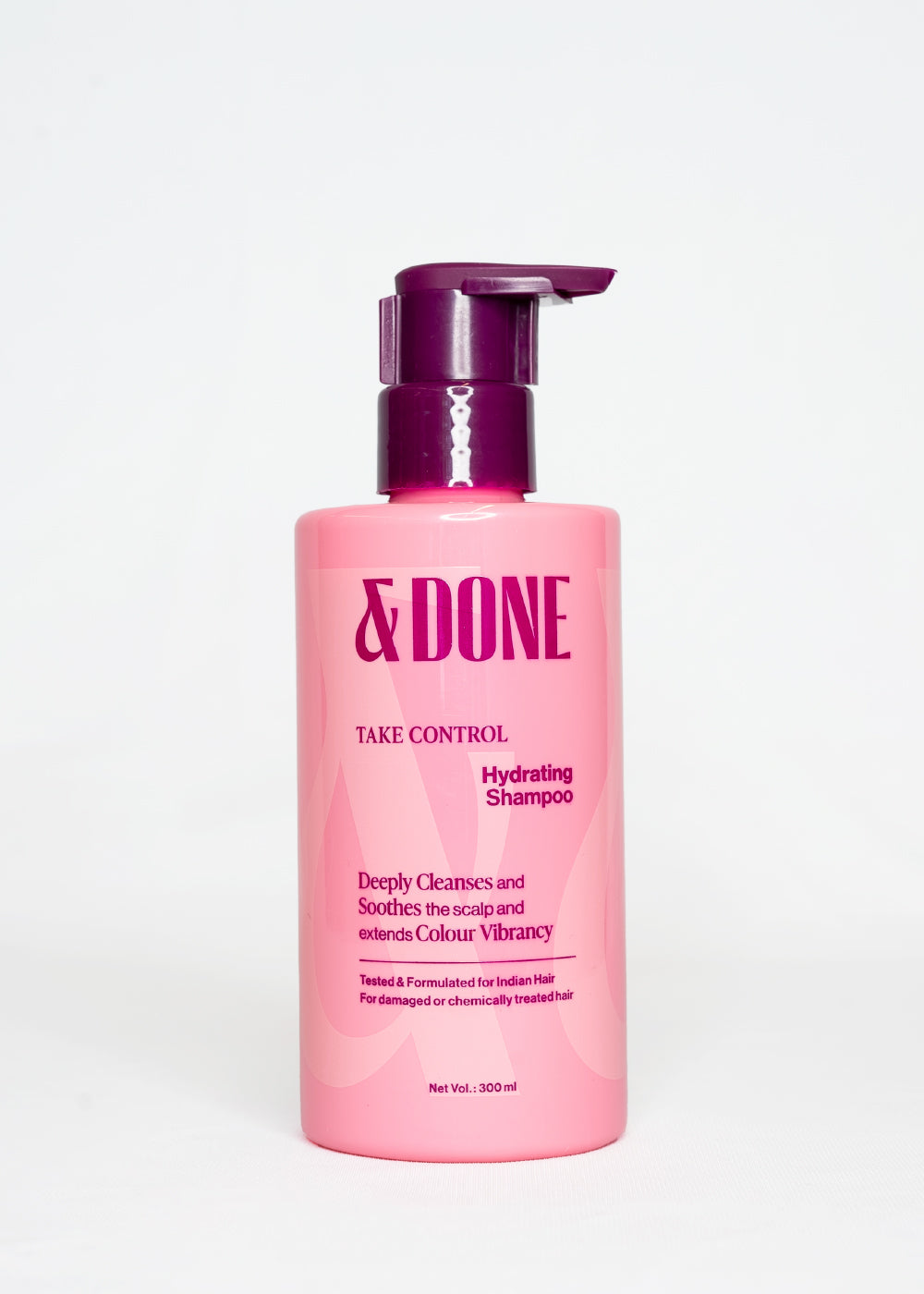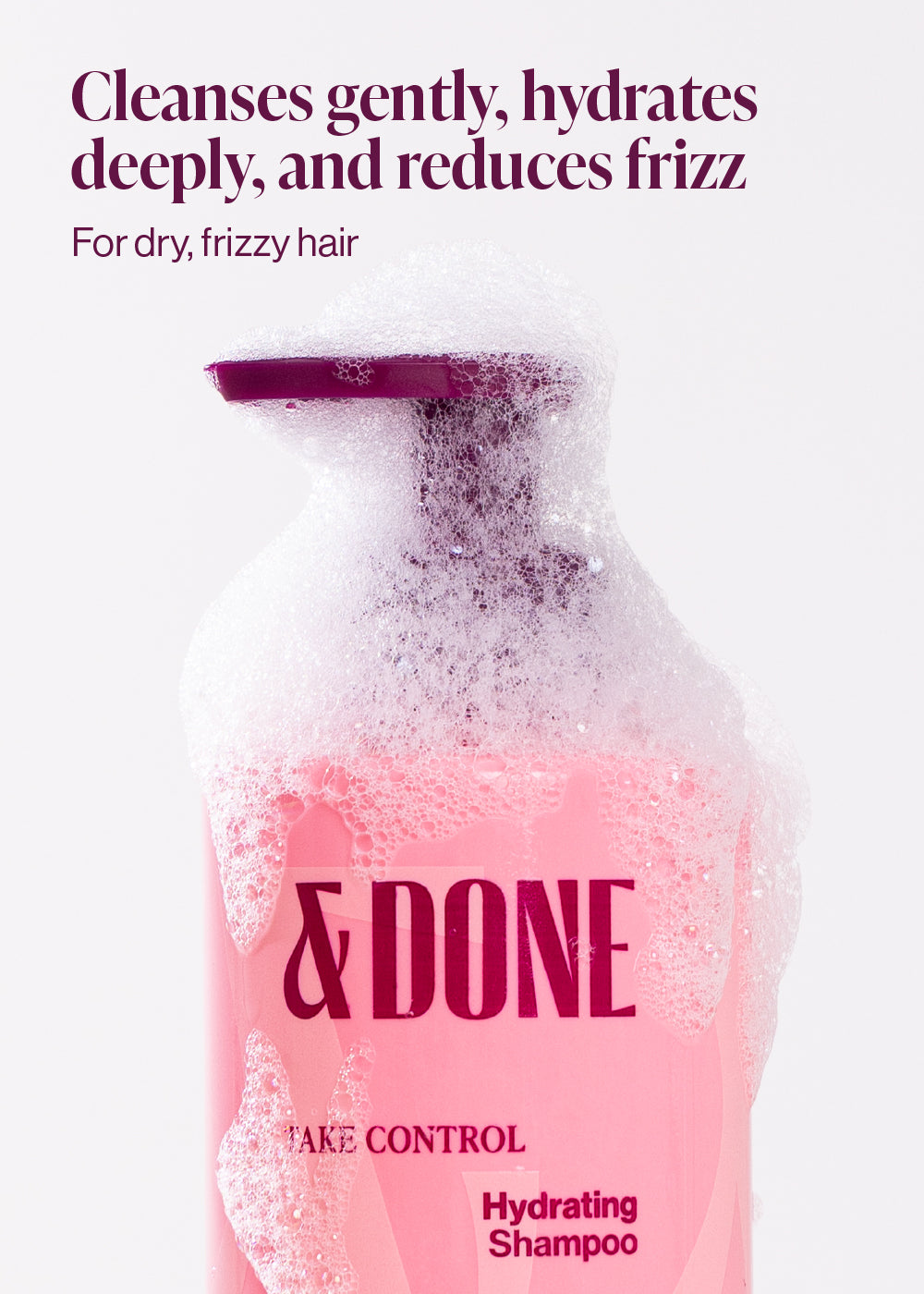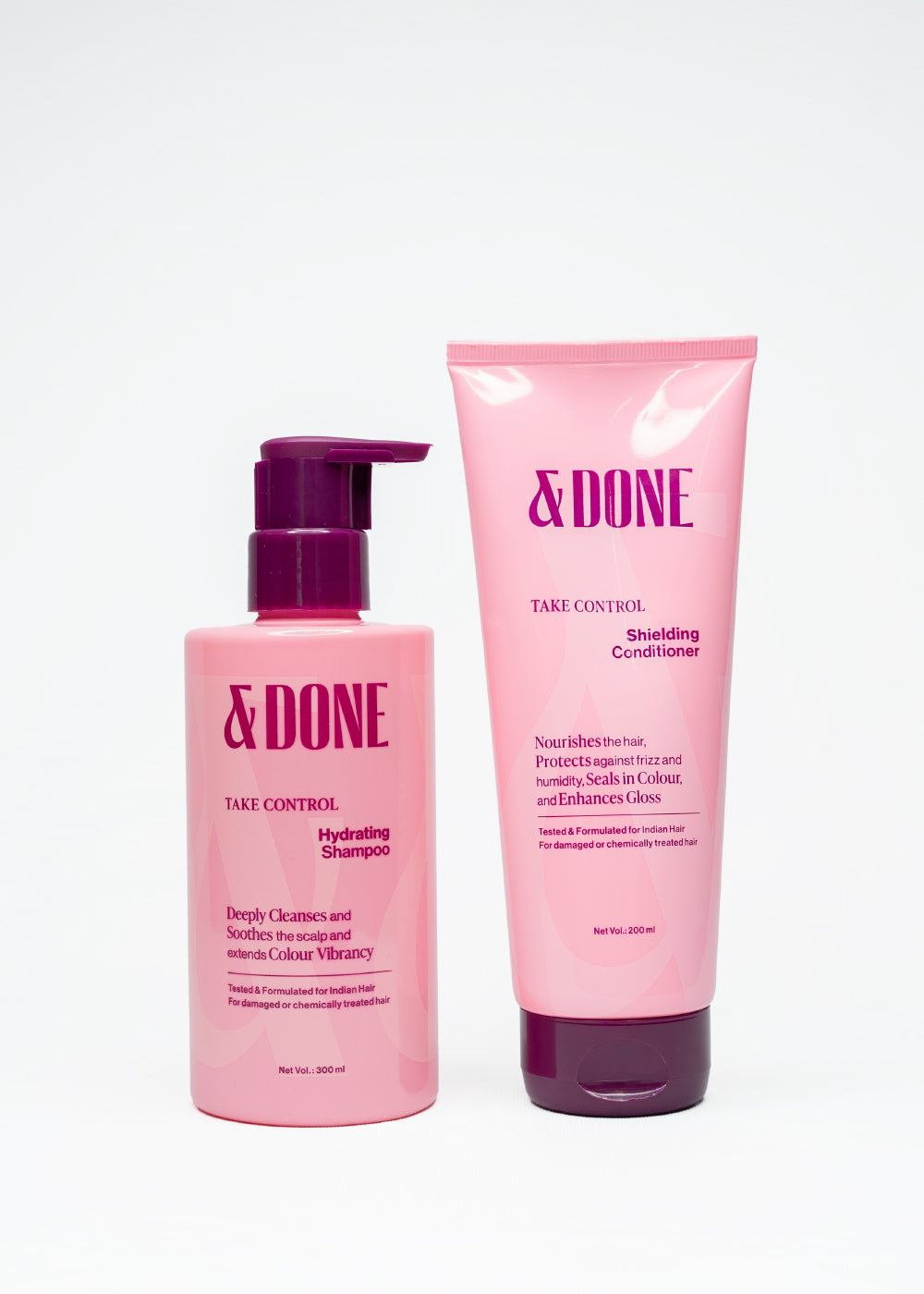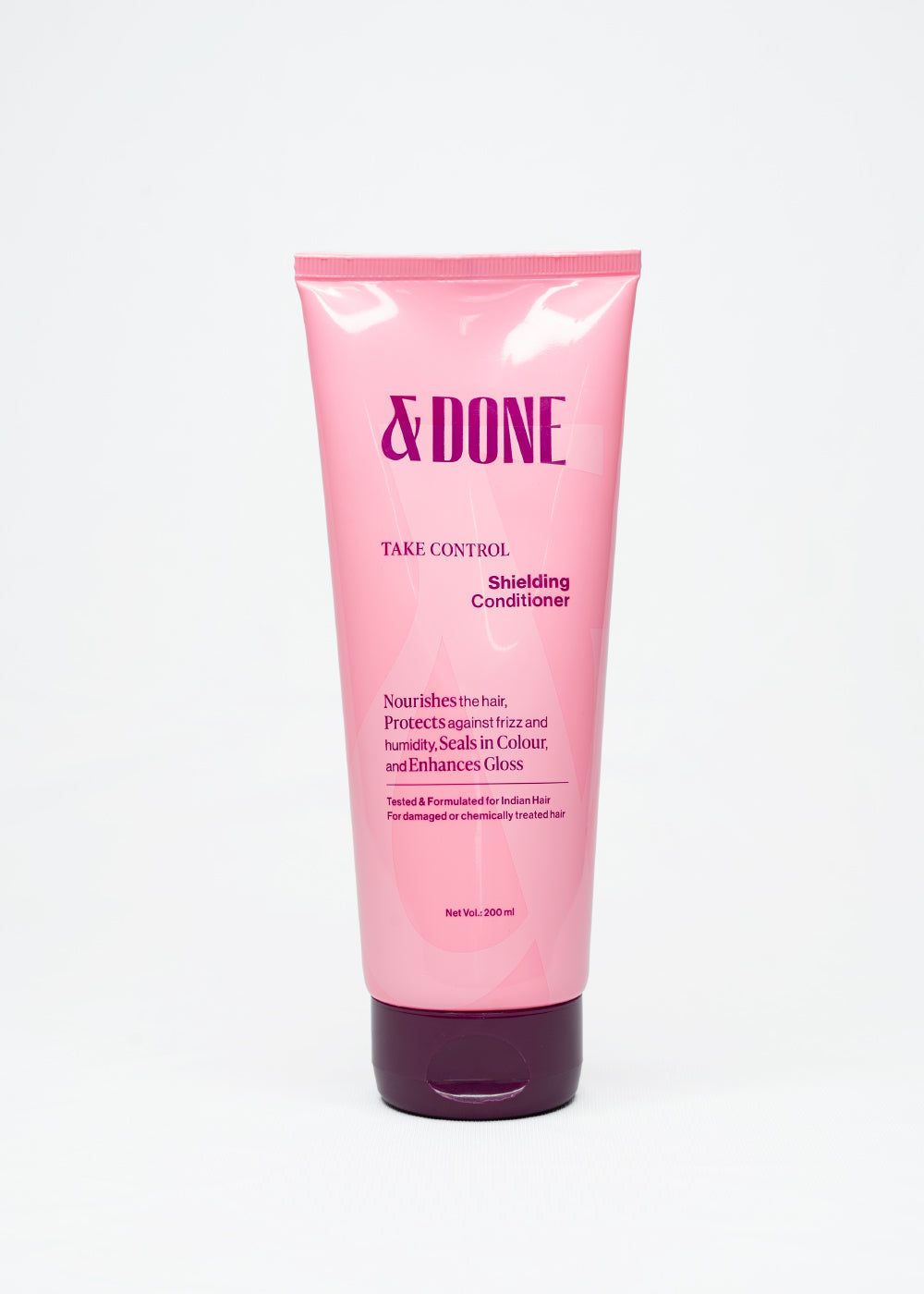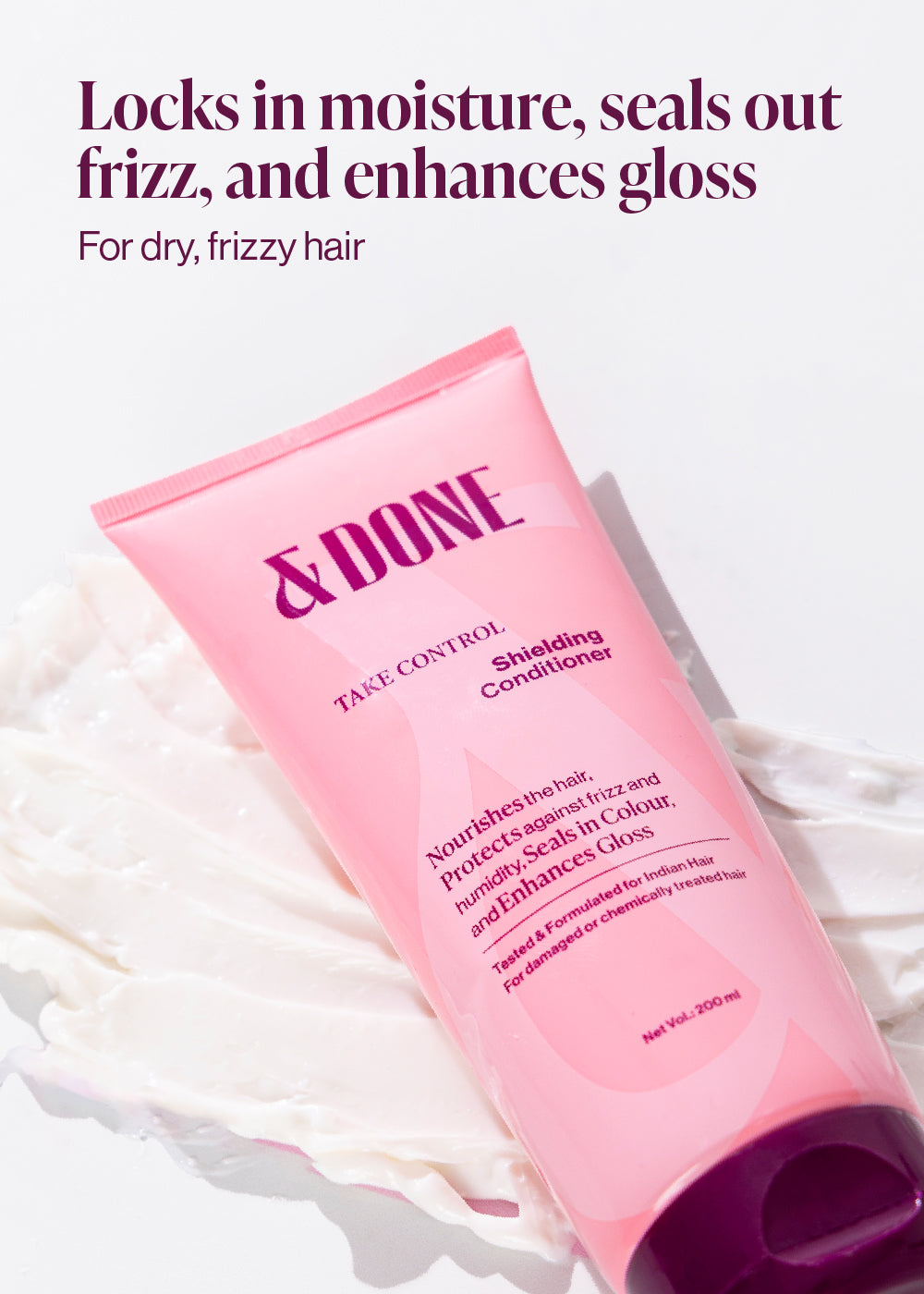What new moms need to know about hair shedding after childbirth.
Hair fall after childbirth is one of those postpartum changes that catches many women off guard. It often begins just when things are starting to settle—around the time your baby is 3 to 4 months old. Suddenly, you're seeing more hair in the shower, on your pillow, and in your brush than ever before.
Though it can feel alarming, postpartum hair fall is completely normal, temporary, and treatable with the right care.
Here's what’s happening, why it occurs, and how to support your hair through recovery.
What is postpartum hair loss?
Postpartum hair loss refers to the excessive hair shedding that typically starts 2 to 4 months after childbirth and peaks by 6 months. The medical term for this is telogen effluvium—a temporary condition triggered by hormonal shifts in the body.
During pregnancy, estrogen and progesterone levels remain high. These hormones extend the hair’s natural growth phase, which is why many women enjoy thicker, fuller hair while pregnant. After childbirth, hormone levels drop rapidly, triggering more strands to enter the shedding phase at once.
What causes postpartum hair fall?
The primary cause is the sudden hormonal shift. But other contributing factors can include:
-
Physical stress from childbirth and recovery
-
Sleep deprivation and fatigue
-
Nutritional deficiencies, particularly iron, protein, or vitamin D
-
Environmental stressors like heat, humidity, and pollution
If you’re breastfeeding, your hair fall might be delayed and start after you begin weaning, when hormone levels shift again.
Why does it feel so intense?
You’re likely shedding more than usual—about 300–400 strands daily, compared to 100–150. That’s a big change, especially after months of minimal shedding during pregnancy.
Also, hair texture and climate matter. Indian hair tends to be thicker and more porous, so it absorbs more moisture and pollutants, making it look duller or thinner during shedding. Humid weather and pollution can compound the problem by weakening already-fragile strands.
How long does postpartum hair loss last?
Postpartum shedding usually tapers off by 6 to 9 months, with visible regrowth—baby hairs along the hairline—starting around that time. Most women regain their hair density by 12 months postpartum.
If shedding continues beyond 12 months or is accompanied by symptoms like fatigue, mood swings, or significant weight changes, it's a good idea to consult your doctor to rule out thyroid imbalance, anemia, or other underlying conditions.
How to stop postpartum hair fall?
Postpartum hair fall may be natural, but your approach to nutrition, care, and stress management can make a significant difference in how your hair recovers.
1. Prioritise nutrition
Your body needs specific nutrients to support healthy hair growth. Make sure your diet includes:
-
Iron-rich foods (leafy greens, lentils, jaggery)
-
Protein sources (eggs, dal, paneer, nuts, fish)
-
Vitamin D, B-vitamins, and zinc, essential for follicle function and strength
2. Choose hair products wisely
Your hair is more delicate during this period. Use products that protect rather than weigh it down.
-
Opt for gentle shampoos and conditioners made for thinning or fragile hair
-
Avoid heavy oils and styling creams that build up or cause scalp congestion
-
Choose lighter oils like argan or jojoba for nourishment without residue
-
Look for strengthening ingredients such as biotin, keratin, and amino acids
In humid climates like ours, washing every other day can help keep the scalp clean without over-drying.
3. Handle hair gently
Minimise breakage by adjusting daily habits:
-
Detangle with a wide-tooth comb, ideally when hair is damp
-
Avoid tight hairstyles that pull at the scalp
-
Use a silk or satin pillowcase to reduce nighttime friction
-
Limit heat styling, and always use a protectant if needed
4. Manage stress proactively
Caring for a newborn is demanding, and stress—physical and emotional—can contribute to ongoing hair shedding. Simple ways to manage stress:
-
Prioritize rest when possible, even short naps
-
Include light movement like stretching or walking, if approved by your doctor
-
Lean on your support system—whether it’s a partner, parent, or a friend
-
Consider short breathing or mindfulness exercises to calm your system
Remember: You’ve done something incredible.
Postpartum hair fall affects up to 90% of new mothers. It’s not forever.
With the right nutrition, gentle care, and a little patience, your hair will come back—just like your strength, confidence, and rhythm.









